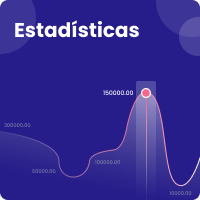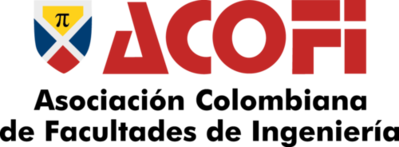Control engineering remote lab: design and hands on practice with a DC motor speed controller
Laboratorio remoto control
DOI:
https://doi.org/10.26507/paper.3333Palabras clave:
Education 4.0, Remote learning, Automatic Control, Applied ReseachResumen
The COVID-19 pandemic had a significant impact on education worldwide, prompting the adoption of virtual learning at all educational levels as a solution to overcome distance barriers, providing flexible study schedules and producing digital content to support adaptive learning. Educational institutions quickly adjusted their curriculum to enable uninterrupted learning in response to the new reality. However, implementing virtual education was challenging, particularly in terms of technology accessibility. Not all students had access to appropriate devices and connectivity, leading to a digital divide. Additionally, the lack of face-to-face interaction posed challenges for students as they adjusted to diverse learning platforms and grappled with uncertainties about the pandemic's impact on their future.
The isolation also affected curricula, resulting in the cancellation of corporate internships and hands-on activities, particularly in engineering disciplines that rely on practical components. As a result, engineering institutions and educators advocated for methodologies that incorporate virtual and distance learning tools. Two noteworthy alternatives are Virtual Laboratories and Remote Laboratories. Virtual laboratories employ simulators to replicate real environmental conditions, while remote laboratories enable students to manipulate experiments in authentic laboratories via the Internet remotely.
This study focuses on developing a remote laboratory for hands-on practices in control engineering, specifically involving a DC motor, using the Internet of Things (IoT) protocol. The laboratory incorporates a motor connected to a development board with MQTT protocol-based messaging services, a lightweight and widely used IoT protocol. The laboratory's web page hosted on the server facilitates data transmission and reception, along with real-time video streaming for users to observe the motor's operation. By using the remote laboratory, students gain access to a standardized control device, enabling the application of theoretical knowledge in control systems. They can experimentally determine system transfer functions through identification or modeling, design controllers, and test them on the physical platform, all from the comfort of their homes.
To summarize, remote laboratories have been valuable tools in engineering education, addressing the challenges caused by the COVID-19 pandemic. These laboratories enhance the learning process by providing access to practical experiences and advanced resources, consolidating theoretical concepts, and offering students greater flexibility in their educational journey.
Descargas
Citas
ABEKIRI, N., RACHDY, A., AJAAMOUM, M., NASSIRI, B., ELMAHNI, L., & OUBAIL, Y. (2023). Platform for hands-on remote labs based on the ESP32 and NOD-red. Scientific African, 19. https://doi.org/10.1016/j.sciaf.2022.e01502
Abumalloh, R. A., Asadi, S., Nilashi, M., Minaei-Bidgoli, B., Nayer, F. K., Samad, S., Mohd, S., & Ibrahim, O. (2021). The impact of coronavirus pandemic (COVID-19) on education: The role of virtual and remote laboratories in education. Technology in Society, 67. https://doi.org/10.1016/j.techsoc.2021.101728
Blazquez-Merino, M., Perez-Molina, C., Castro, M., Garcia-Loro, F., San Cristobal, E., Tovar, E., & Martin-Gutierrez, S. (2020). Experimental Didactic Proposal using VISIR Remote Laboratory to Learn Diode-Based Circuits. Proceedings - 2020 IEEE 44th Annual Computers, Software, and Applications Conference, COMPSAC 2020, 158–164. https://doi.org/10.1109/COMPSAC48688.2020.00029
Hariton, A., Zet, C., Vremera, E., & Fosalau, C. (2020). Remote Laboratory-Study of Digital Oscilloscope. EPE 2020 - Proceedings of the 2020 11th International Conference and Exposition on Electrical And Power Engineering, 495–500. https://doi.org/10.1109/EPE50722.2020.9305551
Lavayssière, C., Larroque, B., & Luthon, F. (2022). Laborem Box: A scalable and open source platform to design remote lab experiments in electronics. HardwareX, 11. https://doi.org/10.1016/j.ohx.2022.e00301
Poliakov, M., & Rida, I. (2020). Remote laboratories for engineering education: status and prospects. 2020 Advances in Science and Engineering Technology International Conferences (ASET), 1–6. https://doi.org/10.1109/ASET48392.2020.9118221
Reid, D. P., Burridge, J., Lowe, D. B., & Drysdale, T. D. (2022). Open-source remote laboratory experiments for controls engineering education. International Journal of Mechanical Engineering Education, 50(4). https://doi.org/10.1177/03064190221081451
Descargas
Publicado
Cómo citar
Evento
Sección
Licencia
Derechos de autor 2023 Asociación Colombiana de Facultades de Ingeniería - ACOFI

Esta obra está bajo una licencia internacional Creative Commons Atribución-NoComercial-SinDerivadas 4.0.
| Estadísticas de artículo | |
|---|---|
| Vistas de resúmenes | |
| Vistas de PDF | |
| Descargas de PDF | |
| Vistas de HTML | |
| Otras vistas | |








